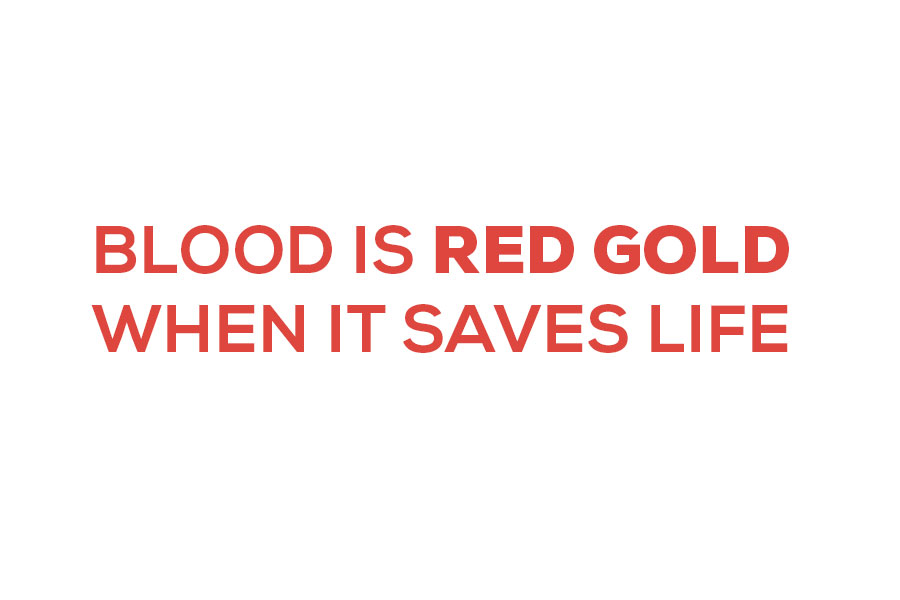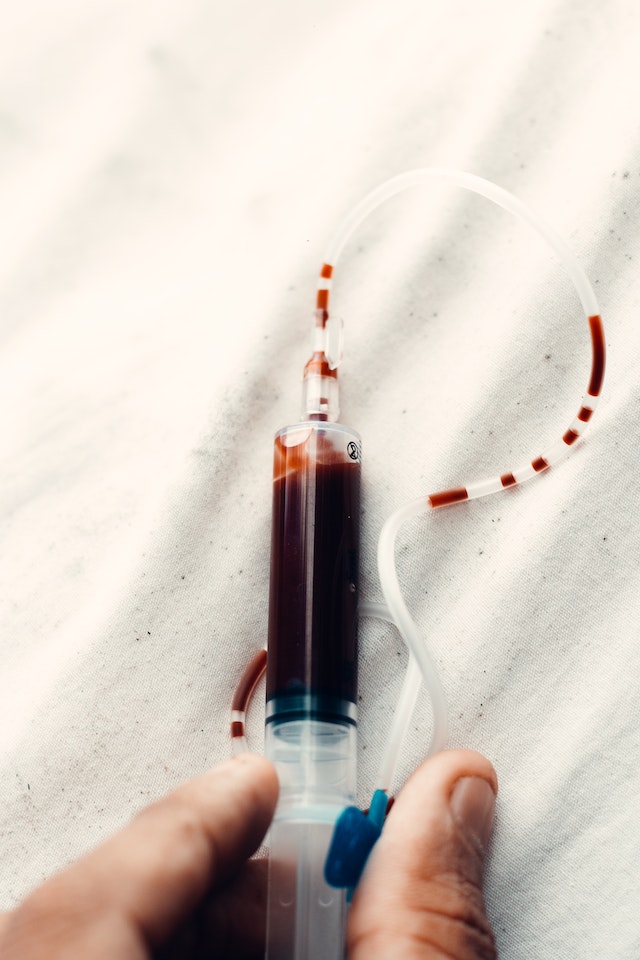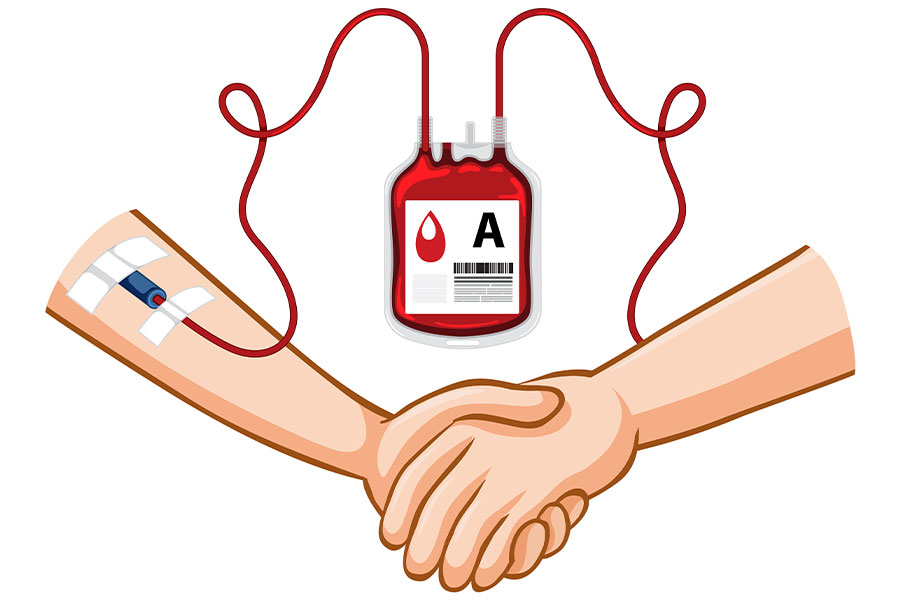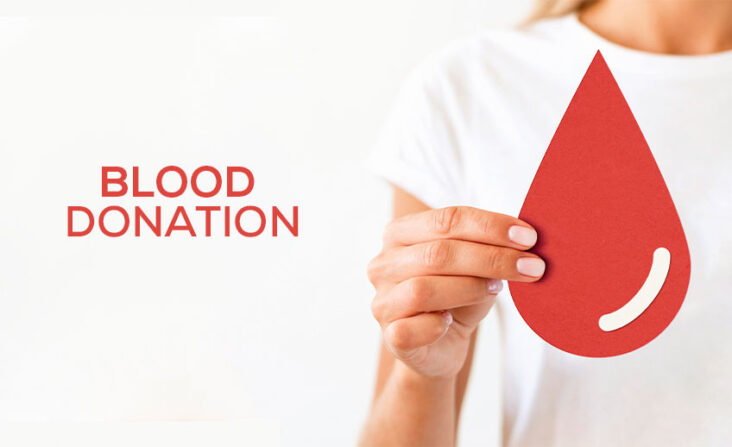Prakash had sleepless nights and restless days trying to arrange blood donors, at times paying up to ₹3,000 per donor in the black market for one ‘professional’ donor. His 55-year-old father, battling serious blood cancer, needed an urgent blood transfusion. The cancer caused abnormal bleeding from his bowel, and without a blood transfusion to increase his hemoglobin level, he would miss the next cycle of chemotherapy. Prakash got really lucky at that particular time, but, what about countless others suffering due to donor blood shortages all over the country?
The Problem:
In India, the lack of adequate blood products has been a serious public health issue. It is believed that the lack of blood products causes over 12,000 preventable deaths every single day. The current blood transfusion service, which supports a population of 1.4 billion, is spread thin, with little over 3,700 blood banks, 70% of which are found in just eight states of our country. As of 2020, 63 Indian districts did not have even a single blood bank. Health care facilities that lack blood banks on-site must rely on blood storage facilities elsewhere for access to safe blood.

The Solution:
Donating blood is an easy but effective act that can have a big impact on other people’s lives. Millions of individuals throughout the world need blood transfusions every year for reasons related to illnesses, surgeries, and other medical ailments. People can contribute a precious resource that can be utilized to save lives, improve health, and fund medical research by giving blood. This article will elaborate on how blood donation benefits those who give it, who can or cannot donate blood as well as the detailed process of donating blood.
Why do I need to consider voluntary blood donation?
- Health Benefits: In those persons, with certain conditions like polycythaemia (high hemoglobin/iron content in blood), regular blood donation helps them get rid of excess iron, which can otherwise accumulate in the body causing heart issues and increasing the risk of blood clots. Reduction in excess body iron
levels can also reduce the risk of certain cancers like lung and colon cancers.
- Enhances Emotional Well-being: Donating blood might be beneficial for the donor’s emotional health. Giving to others can boost happiness, lower stress levels, and enhance general wellbeing, according to scientific studies. Donating blood gives people the chance to positively impact the lives of others, which can be a meaningful and rewarding experience.
- Free Health Check-up: Before donating blood, donors get a physical health check-up, and this involves getting their blood pressure and other health issues including anemia and infectious diseases checked out. This process can assist a donor in identifying and managing any potential health issues early on.

Are there any eligibility requirements to donate blood?
- Age of minimum 18 years
- Minimum weight for height requirement (Your doctor will determine this)
- To ensure that the blood they donate is safe for the individual receiving it, donors must adhere to strict health requirements. This includes being free of some contagious illnesses like HIV and hepatitis, as well as engagement in specific high-risk activities like recreational drug use, tattoos on skin or unprotected sex with numerous partners.
- Reasonably health. If chronic health problems like Diabetes, heart disease or hypertension are not well controlled, then you are not eligible to be a donor.
What are the steps involved in blood donation?
From initial screening to home advise, the blood donation procedure normally entails the following steps.
- Registration: Registration is the very first step in the blood donation procedure. In order to assess their eligibility to give blood, donors must first supply their basic information and finish a brief health questionnaire.
- Medical History Screening and Physical Inspection: After signing up, donors are required to have a history and physical examination to make sure they fulfill the minimum requirements for blood donation. The donor’s blood pressure, pulse, and temperature are taken, and their hemoglobin levels should be checked to make sure they are not anemic.

- Blood collection: Blood will be collected after the history and physical examination. Blood collection is usually done from the arms. In most centers, a screening blood test is done prior to blood donation to ensure you have adequate hemoglobin and do not have blood borne viruses already in your body. In most places, an anesthetic is first instilled at the injection site, and then the blood collection needle is inserted. This ensures optimum comfort for the donor. About 300-350mL (Total blood volume present in an average adult body is 5-6L) of blood is collected directly into a blood collection bag. Usually, the donation procedure lasts between 15-20 minutes, during which the donor can relax in a chair or recliner.
- Post-Donation Care: Following the completion of the donation, donors are monitored for a brief time to make sure they are feeling okay and are not having any discomfort. Donors rest for about 15-20 minutes. Snacks and beverages are given to help them feel better. Some donors can experience light-headedness after the procedure. There are medical personnel at hand to monitor you throughout and after the procedure.
- Instructions after leaving the donation center: Blood donors are given guidelines on how to take care of oneself after donating. This entails refraining from strenuous exercise for a few hours, drinking plenty of water, and putting off drinking or smoking for a while.

